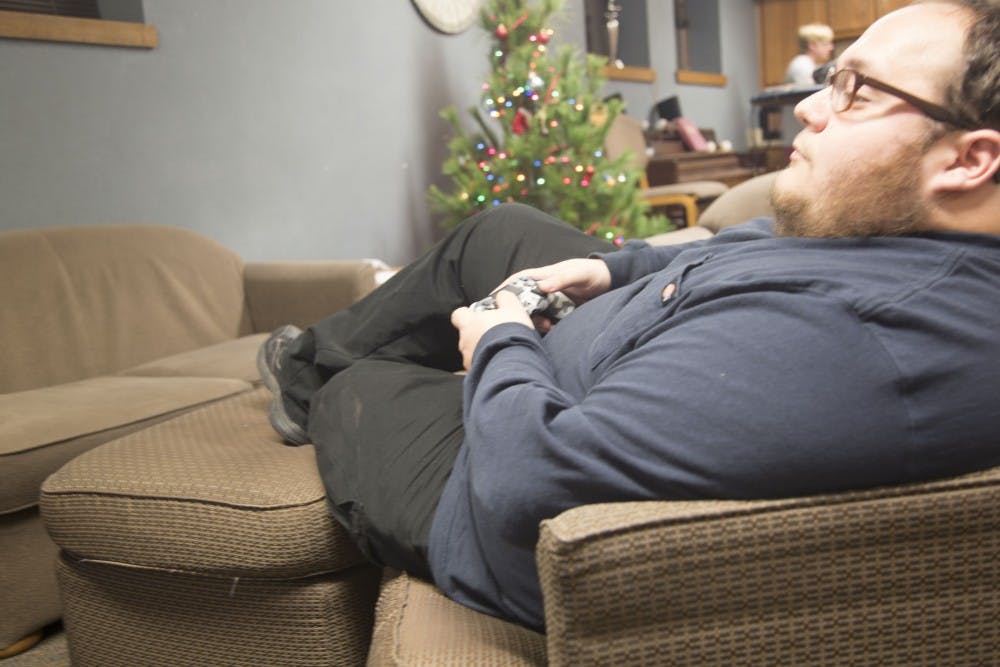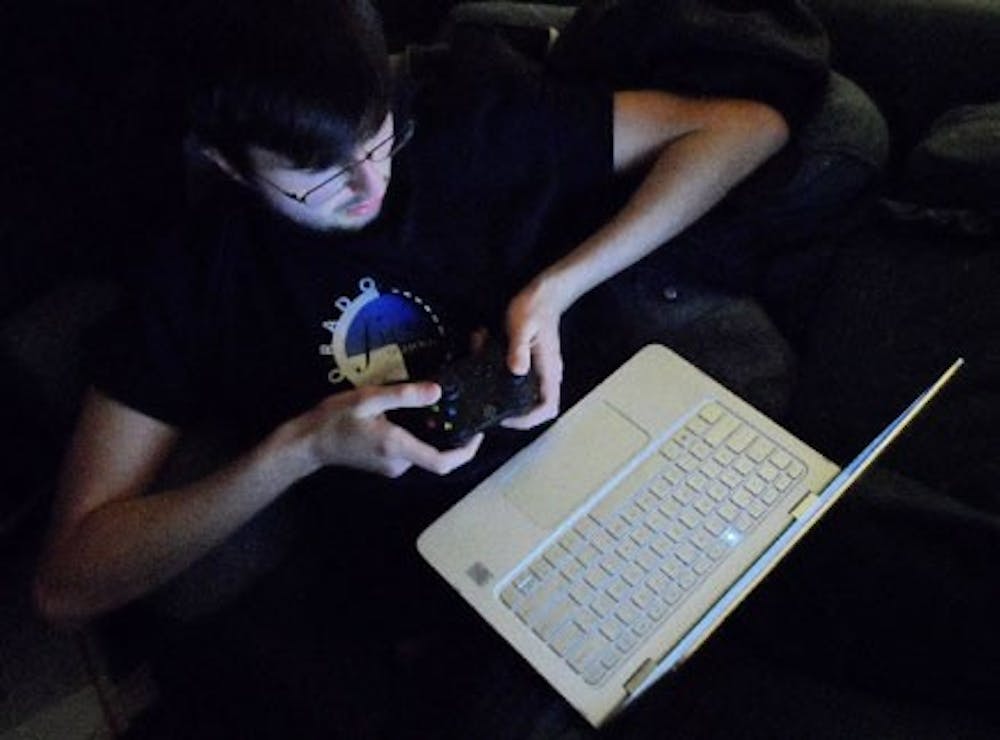
By Tim Pietz | Contributor
Eyes glazed. Spindly limbs folded. Appendages twitching. Is it dead? No-it's a gamer.
You've heard the critics: video games are antisocial, addictive time-wasters. Yet passionate gamers defend their hobby, citing artistic merit and community building.
Gaming certainly affects Taylor University's community, but how it affects the university is subject to debate-sometimes intense debate.
For instance, gaming in Swallow Robin's lobby led to years of controversy. During the 2014-15 school year, tensions escalated between pro-gaming and anti-gaming groups. At last, Hall Director D'Andre Coates made a decision: gaming in the lobby was prohibited on weekdays. In addition, some games, like League of Legends, were banned from the lobby.
Shelby List became the new hall director in Fall 2015, but the policy remained. Gamers were frustrated with rules they considered too harsh, and the hall director and PAs were frustrated by what they considered limit-pushing by gamers in the dorm.
Fortunately, both gamers and Residence Life leadership were willing to negotiate. Gamers were given an opportunity to show that gaming could benefit Swallow's community, which they demonstrated through a trial run of free gaming on a single weekday, to List's satisfaction. This semester marked the final policy change. Now, weekday gaming is allowed after 7 p.m., and games like League of Legends are no longer banned. This arrangement satisfied both gamers and leadership.
Swallow Robin's controversy has been laid to rest, but the questions remain: do the benefits of gaming on campus outweigh its drawbacks? How should students approach gaming? The experiences of several students illustrate these questions' complexity.
Freshman David Fletcher compares his experience with gaming to alcoholism: like alcohol, gaming is fine in moderation, but when abused, it controls you. During Fletcher's middle school years, video games became an idol for him: "They became my worship, and that was not at all healthy." Though Fletcher still enjoys playing video games, he said he is careful to find his comfort in God rather than gaming.
Senior Ian Proano agreed that video games can become controlling. Proano can cite multiple college students whose gaming addictions damaged what Proano thought should be their priorities, particularly academics. Proano described how addicted gamers crave increasingly higher amounts of gameplay to achieve the same amount of pleasure-like a drug addiction.
Some science backs these strong statements. Kay Keller, a licensed mental health counselor at Taylor's Counseling Center, cites Thad Polk's course, "The Addictive Brain," as evidence. The course reports video game addiction occurs in the same way chemical addiction does. In both cases, the brain reduces the pleasure center's response after habitual use of the substance or activity, resulting in the individual's need to do more of the substance or activity to receive the same pleasure. As a result, a tolerance is developed and an addiction is formed.
Video games can drag people away from what matters in life, but sometimes, they push people toward it.
Freshman Madeline Fox has plans for post-college education-and it's all because of a video game. One day during the summer before high school, she was lying sick in bed, bored stiff. The only video game she had to play was Ace Attorney, a video game about lawyers.
"This is terrible," she thought, but there was little else to do all day. She started playing. To her surprise, she enjoyed the game. Ace Attorneyinspired her to take a law class, which she enjoyed as well. "Because of a video game . . . I was kind of able to see the world in a different way." After college, Fox plans to attend law school.
Video games can inspire, but even if that inspiration doesn't change someone's life plans, it can create a common bond.
"You definitely gain more friends," said junior A.J. Pegues. Pegues compared gaming to playing sports. Freshman Elijah Oates agreed, "Five guys working together to kill the enemy nexus (have) more in common with five guys trying to get a ball in a bucket than most might think."
Fletcher agrees that gaming can create healthy community. "You can walk away from a (video) game and feel like you're part of a family," Fletcher said. But he draws a distinction between face-to-face and online gaming. Face-to-face interaction is multidimensional, but online communities only exist through video games. If people lose interest in the game, the community falls apart.
Swallow Robin Hall may have found a policy, but it didn't find the answer. Video games have many aspects. They can be a point of connection in community, they can tell a story that inspires but they can also distract from spiritual life and studies. Finding a balance is not a simple task.



